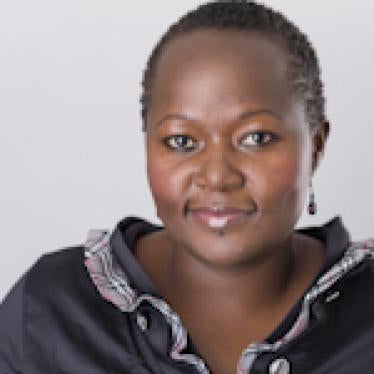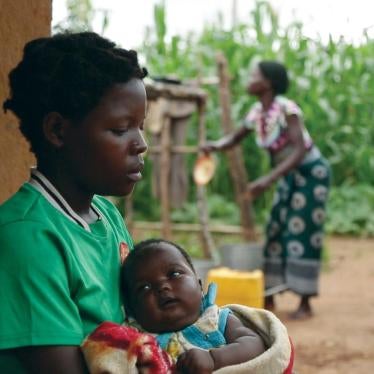I grew up in a typical rural African family, with uncles, aunts, cousins all living together. Occasionally a neighbour’s child, let’s call her Kariithi, lived with us as part of this extended family. She was an intelligent girl who dreamed of going to university like me. One day, though, I came home from the university to find her gone.
I later learned that her father had forced her to marry a 35-year-old man who had paid him 15 cows as dowry. Kariithi was only 14 and in the final year of primary school. She had often said to me, “I smell secondary school,” an indication of her excitement about continuing her education.
Describing her experience of her forced marriage to me five years later, Kariithi simply said that her father had killed her soul. Despite sexual and physical violence by her husband, her biggest regret was that marriage robbed her of her dream - to go to university.
With time Kariithi’s story started to fade from my memory, until about three years ago when, as a Human Rights Watch researcher, I started interviewing girls about their experiences of child marriage. Many broke down crying as we talked. The stories of these girls - hundreds of them in South Sudan, Malawi and Tanzania, opened my eyes to the often far-reaching and long-lasting harm of child marriage - the physical, emotional, and mental damage, as well as lost opportunities for happiness and personal development.
Africa celebrated the Day of the African Child on Monday, a day marked by the African Union (AU) every 16 June since 1991 to commemorate the 1976 protests by schoolchildren in Soweto against an education designed to further the purposes of the South African apartheid regime. This year’s theme, “A child-friendly, quality, free, and compulsory education for all children in Africa,” was chosen after consultation with children, highlighting the value that African children place on education.
Child marriage remains one of the main barriers to girls’ education, and governments are not doing nearly enough to address the problem. One study found that if child marriage and early pregnancies could be eliminated, it could potentially cut in half the gender gap in education. Few of the girls I interviewed had returned to school after marriage. They lacked money and child care, had to do household chores, or had no access to adult classes or other flexible school programmes such as evening classes. Others told me their husbands or in-laws would not allow it. Like Kariithi, almost every girl said her biggest regret was that marriage ended her education. Many hoped to go back to school.
Some governments actively block married girls’ access to education. Tanzania does not allow students who become pregnant or marry to stay in school. Malawi requires pregnant girls to stop going to school for an academic year, with complicated readmission requirements.
The good news is that child marriage is currently getting a lot of international attention. The AU’s expert body on child rights, the African Committee of Experts on the Rights and Welfare of the Child (ACERWC), has finally taken up the issue, including a day-long discussion during its April meeting in Addis Ababa.
The committee is agreeable to calls by independent organisations to develop legal guidelines to help governments fulfil their obligations to protect girls from this serious human rights violation. On the Day of the African Child, the committee emphasized that cultural and social norms relating to pregnancy can be barriers to girls’ education, though they didn’t specifically cite child marriage.
The African Union has also taken a major step with its new two-year campaign to end child marriage in Africa. The campaign aims to accelerate change across the continent by urging African governments to take policy action to protect girls’ human rights and to enforce laws, develop national strategies, and raise awareness about the harm child marriage causes.
As part of the campaign, governments should take concrete steps to ensure that their policies and practices support girls’ education. They should develop and implement policies that support pregnant and married girls who want to continue their schooling, remove unnecessary readmission protocols, and ensure the true realization of free and compulsory education. The AU should ensure that governments develop tangible measures to address child marriage.
During the start of the AU campaign, Martin Mogwanja, deputy executive director of the United Nations children’s fund, UNICEF, said: “This push led by Africans for Africans must not stop until every girl in every family and every community has the right to reach her 18th birthday before getting married.” If we achieve this, Kariithi and other girls like her will have better chances of getting the education they want and need.








